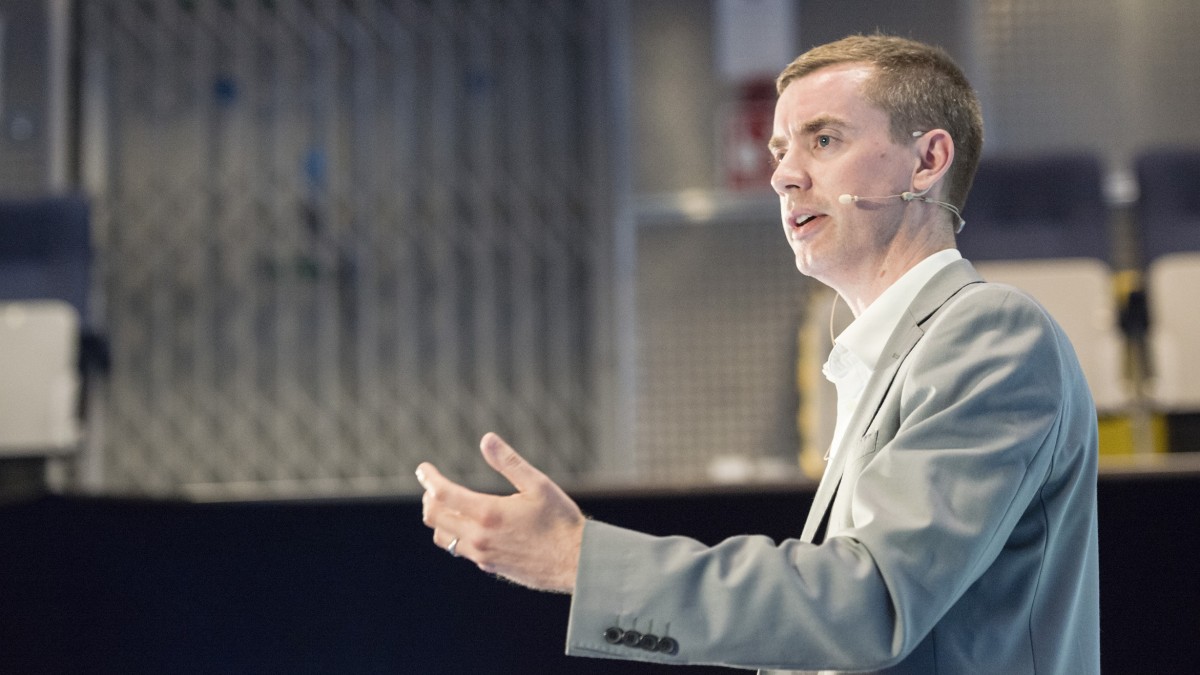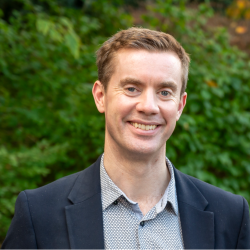Meet the academic: Professor Benjamin Gardner
Professor Benjamin Gardner, Professor in Psychology, tells us about Surrey's MSc Behaviour Change, what he's looking for in postgraduate students and why he's passionate about this area of study.

"Surrey graduates are uniquely well-placed to go out into the world and make a difference." - Professor Benjamin Gardner
Tell us a bit about what you do.
I’m an applied social psychologist: I use theories, concepts and principles from social psychology to tackle problems by understanding and changing behaviour. My applied work has mostly been in the health domain, focusing on behaviours like physical activity and dietary consumption, and in sustainability-related behaviours, such as travel mode choice and water conservation.
What brought you to Surrey to teach?
I joined Surrey in April 2022. I liked that the teaching and research done here emphasises real-world application; at Surrey, we don’t teach students solely for the purpose of increasing their skills and knowledge, but rather we aim to support students to apply their skills and knowledge to real-life problems. Surrey graduates are uniquely well-placed to go out into the world and make a difference.
What is your area of expertise and why are you passionate about it?
My main area of expertise is the psychology of habit and habitual behaviours – that is, those behaviours that we do on autopilot, without thinking. I love studying this area because habit plays some role in almost everything we do. Habit affects not only very simple motor activities (e.g. automatically moving one leg in front of the other when walking), but also in much more meaningful activities (e.g. deciding whether to vote, and shaping who we choose to socialise with). Behavioural scientists are increasingly seeking to use habit principles to change behaviour.
"Students must have a natural curiosity about human behaviour and how it might be changed, an openness to unfamiliar perspectives on behaviour change and a desire to apply their knowledge to real-world settings."
You are the programme leader for our MSc Behaviour Change. Could you tell us about this course and why this field is important?
Many of the most pressing challenges facing the world today – e.g. climate change, promoting population health – are rooted in human behaviour. Addressing these problems requires an understanding of why people behave in the way that they do and how to support people to change their behaviour.
Psychologists alone cannot bring about meaningful and lasting changes in behaviour. Our programme adopts an interdisciplinary approach to behaviour change, supporting students to integrate a range of behavioural science disciplines to offer well-rounded solutions to challenges we face in society.
What are you looking for in a postgraduate student?
Although the programme is hosted in the School of Psychology, we’re looking for students from any behavioural science background. Students must have a natural curiosity about human behaviour and how it might be changed, an openness to unfamiliar perspectives on behaviour change and a desire to apply their knowledge to real-world settings.
What aspect of your own studies had the biggest influence on you?
I attended a talk about a state-of-the-art understanding of the role of habit in physical activity, which just didn’t compute for me; it didn’t tally up with studies of physical activity in daily life or everyday experience. This taught me that, if we stay within the comfort zone of our own disciplinary ‘bubbles’, or within academia more broadly, our research risks becoming separated from reality and therefore lacking relevance.
What do you enjoy doing outside of academia?
I like going for long walks, exercising and spending time with my family.
You’d be hard-pressed to find any psychologist who doesn’t apply behavioural science to their own lives. Hence, my life is full of multiple behaviour change challenges, such as keeping up a streak of daily workouts, which I’ve done every day, except one, for the past 18 months; trying to limit my tea consumption (rather less success to report on that front, sadly); and trying to exert some semblance of influence over my two children’s screen time – the greatest challenge of all!
Find out more about our MSc Behaviour Change and our other postgraduate courses in psychology.
